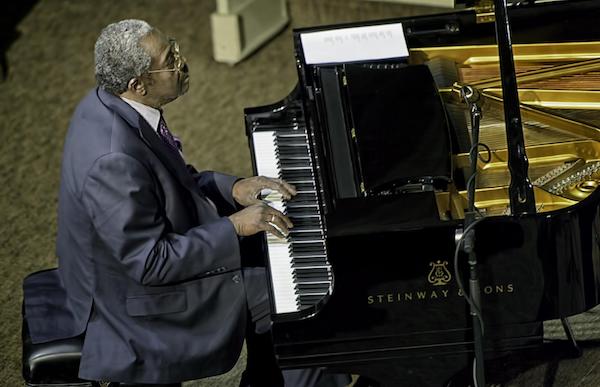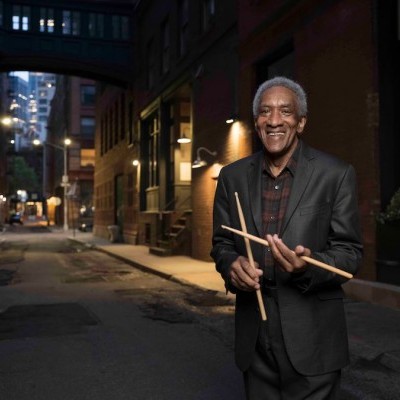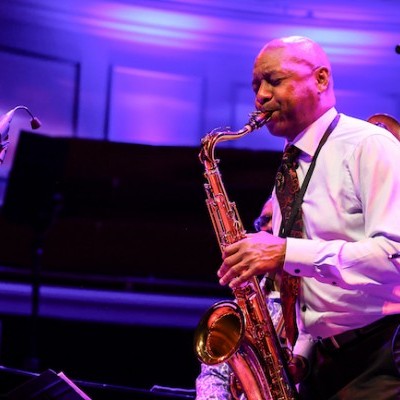Jun 3, 2025 11:25 AM
In Memoriam: Al Foster, 1943–2025
Al Foster, a drummer regarded for his fluency across the bebop, post-bop and funk/fusion lineages of jazz, died May 28…

Larry Willis (1942–2019)
(Photo: larrywillisjazz.com)Larry Willis, a consummate pianist, composer and producer, died of an aneurysm on Sept. 29 at Baltimore’s Mercy Medical Center. He was 76.
As a pianist, Willis harnessed a thick, orchestral touch. Still, he was a nimble and resourceful improviser who would draw from a deep well of influences. “The thing that really impressed me about Larry’s musicianship was that he could adapt to multiple styles of music—from hard-bop, bebop, ballad to rock. He was a master of them all,” said drummer and vibraphonist Warren Wolf, who as a Berklee College of Music student in the late-1990s first learned about Willis.
During a career that stretched across five decades, the keyboardist released more than 20 albums as a leader, including gems like 1973’s Inner Crisis (Groove Merchant), 1992’s Solo Spirit (MapleShade) and his final 2011 solo album, This Time The Dream’s On Me (HighNote). In 2015, Smoke Sessions Records released Search For Peace, a disc by the cooperative ensemble Heads Of State that featured Willis playing with bassist Buster Williams, drummer Al Foster and alto saxophonist Gary Bartz.
MapleShade Founder Pierre Sprey, who worked with Willis for more than a decade, praised him as a “born accompanist.”
“He was a very committed accompanist. He was one of those rare people who could sit in with a band that’s having a lame evening, and within the span of eight bars, Larry could generate this electricity that would just ripple across the bandstand. Then all of the sudden, the band would be cooking its ass off,” Sprey said. “That would happen without Larry doing anything showy. He just loved to make other people sound better.”
What’s interesting, though, is that jazz—and even piano—wasn’t what Willis first was smitten by.
Born Lawrence Elliott Willis in New York City on Dec. 20, 1942, he grew up in a household filled with European classical music. His older brother, Victor, was an accomplished classical pianist. Larry’s earliest music aspiration, however, was singing opera. But during his senior year at New York’s Music and Arts High School, he taught himself how to play the piano. Soon after, he played in a jazz trio with classmates—Foster and bassist Eddie Gomez.
During high school, Willis also aspired to become a professional basketball player; he even was offered a few athletic scholarships. But his passion for music triumphed, and he enrolled at the Manhattan School of Music, where he studied music theory and voice. Once there, he met South African trumpeter Hugh Masekela, whom he would perform and record with regularly. It was Masekela who encouraged Willis to take private piano lessons from John Mehegan to strengthen his jazz chops.
Willis progressed so quickly that before he turned 20, he was playing with pioneering alto saxophonist Jackie McLean. Several years later, the keyboardist not only performed on two of McLean’s mid-1960s Blue Note classics—Right Now! and Jacknife—he contributed a few compositions as well. Right Now! featured Willis’ stirring ballad “Poor Eric” (a tribute to Eric Dolphy) and the blistering “Christel’s Time,” while Jacknife contained his terse and episodic “High Frequency” and the snazzy soul-jazz ditty, “The Bullfrog.”
The following decade would prove to be a defining one for the keyboardist.
Willis issued his debut LP as leader, A New Kind Of Soul in 1970 on the Brunswick imprint. The album captured the avant-garde leaning soul-jazz zeitgeist of its day with a rollicking cover of James Brown’s “Lickin’ Stick” and the pensive original ballad “Someday Soon.” Although, it showcased Willis leading a small ensemble, the music sometimes exuded an orchestral sound thanks to the bandleader’s arrangements for three flugelhornists.
Willis’ continued exploring soul-jazz, funk and electric piano on his 1973 sophomore album, Inner Crisis, which today is considered a rare-groove classic among jazz fans and record collectors. In between those two dates, Willis also joined Blood, Sweat and Tears, taking over for Dick Halligan. Also during the early 1970s, Willis joined alto saxophonist Cannonball Adderley’s band. And coincidentally, he joined the saxophonist’s brother, trumpeter Nat Adderley, in a group after his five-year tenure with Blood, Sweat, and Tears.

Foster was truly a drummer to the stars, including Miles Davis, Sonny Rollins and Joe Henderson.
Jun 3, 2025 11:25 AM
Al Foster, a drummer regarded for his fluency across the bebop, post-bop and funk/fusion lineages of jazz, died May 28…

“Branford’s playing has steadily improved,” says younger brother Wynton Marsalis. “He’s just gotten more and more serious.”
May 20, 2025 11:58 AM
Branford Marsalis was on the road again. Coffee cup in hand, the saxophonist — sporting a gray hoodie and a look of…

“What did I want more of when I was this age?” Sasha Berliner asks when she’s in her teaching mode.
May 13, 2025 12:39 PM
Part of the jazz vibraphone conversation since her late teens, Sasha Berliner has long come across as a fully formed…

Roscoe Mitchell will receive a Lifetime Achievement award at this year’s Vision Festival.
May 27, 2025 6:21 PM
Arts for Art has announced the full lineup for the 2025 Vision Festival, which will run June 2–7 at Roulette…

Benny Benack III and his quartet took the Midwest Jazz Collective’s route for a test run this spring.
Jun 3, 2025 10:31 AM
The time and labor required to tour is, for many musicians, daunting at best and prohibitive at worst. It’s hardly…